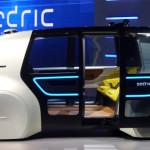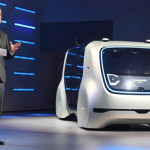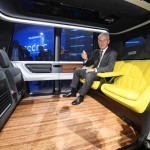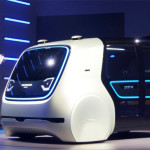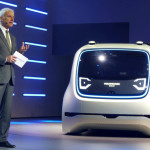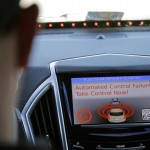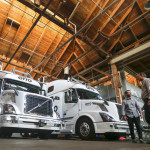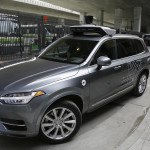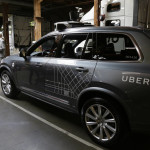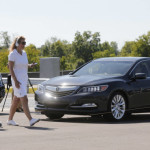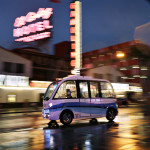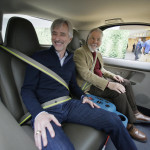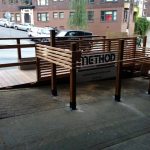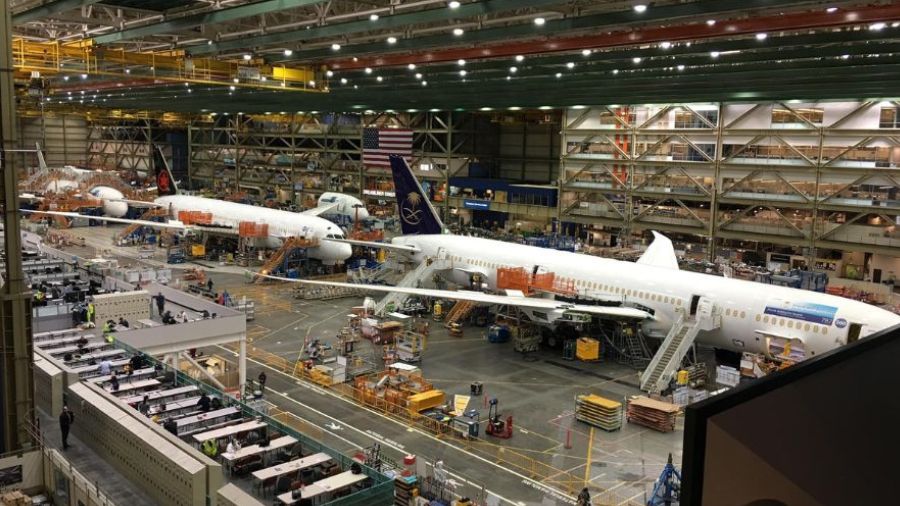Is Seattle prepared for self-driving cars in the near future?
May 18, 2017, 1:32 PM | Updated: 1:37 pm
If what one think tank promotes is accurate — that Americans will ditch private car ownership in favor of self-driving car services by 2030 — then cities like Seattle may have to rethink a few things.
“We assume the disruption will start in the highly dense, high real estate cities. Seattle would be one of them…,” said market disruption expert Tony Seba with RethinkX.
RELATED: Think tank predicts self-driving, electric cars will take over by 2030
A 77-page report by RethinkX considers advances in technology and the economy that will make driverless services up to 10 times cheaper than owning a vehicle. This will cause a disruption in the market, changing how societies across the globe travel, according to the think tank. Other analysts have predicted that a switch is coming, but is much farther out than Seba believes.
Seattle, however, is currently making investments and policies for a future with car ownership in mind. These investments touch infrastructure for electric vehicles, zoning codes for housing, parking and more. But a driverless future could fundamentally shatter the need for these investments.
Electric vehicles
Seattle has already planned for some changes to the automobile industry. Its Drive Clean Seattle plan revised city codes to accommodate 15,000 additional electric vehicles (EV) by 2025. It also incentivizes new charging stations. The city’s goal is to encourage more EVs to cut down on carbon emissions.
Just this week, BMW’s Reach Now pitched in to the Drive Clean effort by installing two new fast electric charging stations at the Woodland Park Zoo. The car-share company plans to install 20 in Seattle.
Seattle has also teamed up with cities along the West Coast to create a “green wall.” The goal is to supply enough fast EV charging stations along major highways and freeways to close the gaps in EV range.
But while the city may be on the right track with an electrified future, it is somewhat off the mark when it comes to self-driving systems. If RethinkX is right, future EVs won’t be privately owned, and therefore, consumer charging stations won’t be needed.
Self-driving public transit
Voters recently approved billions for light rail expansion, but Seba predicts that public transportation will likely be provided by private companies as driverless cars become more prominent.
“When transport as a service provides very cheap, very convenient transportation they are going to provide what public transport provides today,” he said. “Public transport is going to merge and their role is going to change from owning buses, and owning trains and owning bridges and whatnot to managing transport as a service. They will be there to ensure that every citizen has access to transport as a service.”
Parking
Parking is a contentious topic in Seattle. While pedestrians enjoy parklets, they also draw the ire of drivers desperately seeking a parking spot. Seattle also has garnered criticism by allowing developers to build housing without parking.
But if most residents give up their cars, will any of this matter?
“We are not going to need 80-plus percent of parking spaces,” Seba predicts. “That is going to open a lot of land in the cities to develop — green space, affordable housing, more businesses, and so on. We have more than a billion parking spaces in the U.S., more than 13,000 square miles and 80 percent of that is going to be gone … there’s going to be a land bonanza with development, new jobs, construction and so on.”
Some leaders across the United States have already started to look at converting parking lots into housing.
Housing
City officials have recently considered everything from Airbnb regulations to zoning codes for backyard cottages. Housing is an issue Seattleites have struggled with as people strive to find any way to make the city affordable. A side issue is how restrictive the city can be when it comes to homeowners modifying their own homes and how they use them. On the other side of the housing issue are city codes that do not require new apartment buildings to provide parking for residents.
These issues are contentious at times, but they may fade away under a self-driving disruption.
“If you own a home, you have a garage that is going to be empty,” Seba said. “One of the things that we should think about is for policy makers to allow homeowners to re-purpose those garages into, say, in-law units they could rent out to students and so forth and that can alleviate rental issues.”
Seattle is currently caught in zoning limbo over backyard cottages, aka mother-in-law units. It’s a frustrating issue that KIRO Radio’s Don O’Neill recently ran into.
“We are going to need to do a couple things; one is to stop requiring parking or garage space for anyone,” he said. “Any parking that you build today is going to be obsolete, certainly, within a decade – any parking … Cities should start allowing garage owners to convert those things. If you own a home, you can make more money renting out that space for Airbnb and so forth.”
If Seattleites currently want to convert a part of their home into a rental space, however, they are required to provide off-street parking.
This is the second part of a two-part column on a potential self-driving future and what it could mean for Seattle. Read this article to learn more about self-driving technology.
Follow @https://twitter.com/DyerOxley



